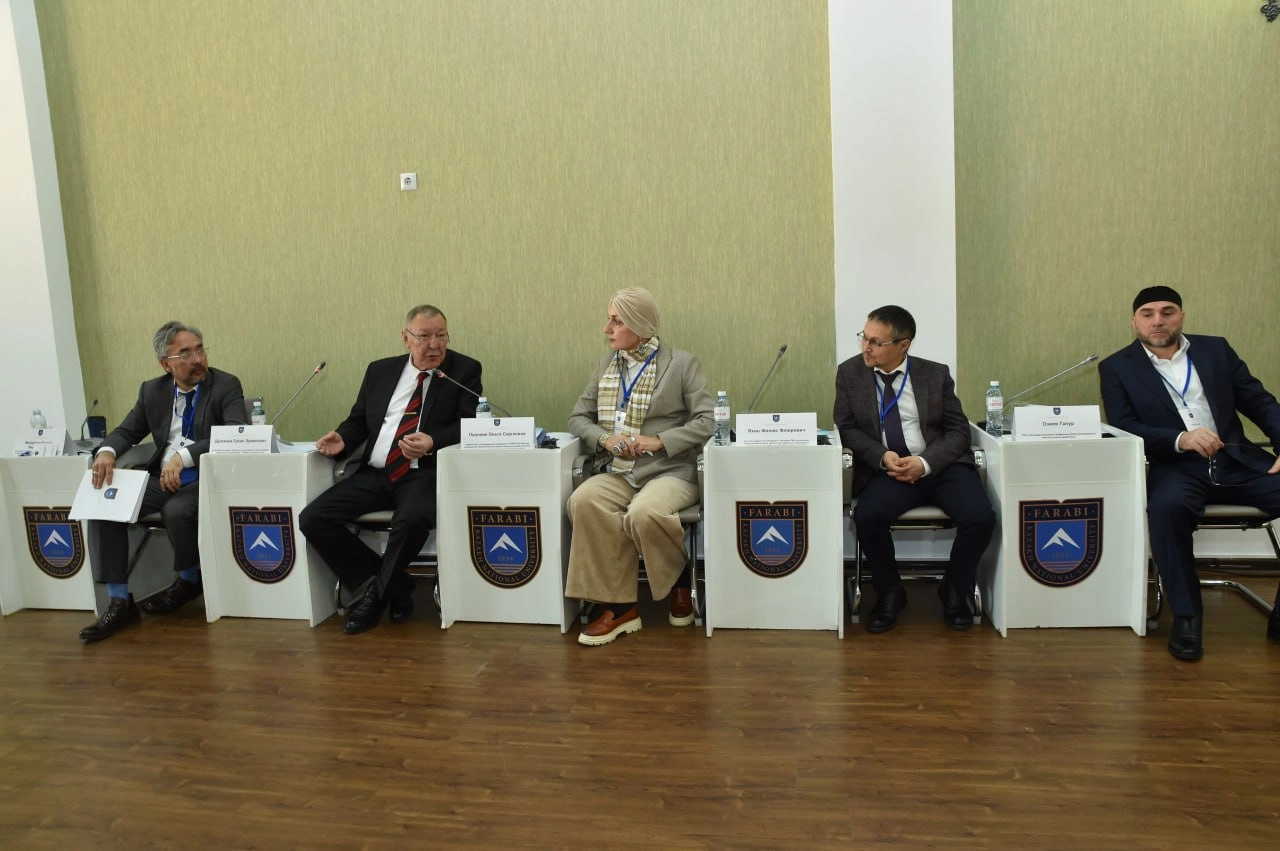The contemporary complex and contradictory world prompts many challenges to humanity, nurturing uncertainty and perplexity in people of different groups. In this context, a visit to a specialist for advice and consultation becomes immensely popular but breeds some concerns among those who profess Islam. Is it acceptable and permissible for a Muslim to come to a psychologist for a consultation? Who is an Islamic psychologist? Is there Islamic psychology at all, and what principles should it follow? These and many other questions were discussed during an International conference titled Contemporary Psychology from an Islamic Perspective that took place in Almaty (Kazakhstan) on November 28, 2024. The event was organized and promoted by the International Institute of Islamic Thought, the Institute of Knowledge Integration, and al-Farabi Kazakh National University, which cordially provided its facilities as the conference venue.
The audience gave a warm welcome to the key-note speakers of the event, among whom were Olga Pavlova, Head of the Department of Cross-Cultural Psychology and Psychological Problems of Multicultural Education, Moscow State University of Psychology and Education, and Filyus Yakhin, Acting Deputy Chairman of the Board of the Association of Psychological Assistance to Muslims (Russia), Head of its Bashkortostan Regional Representative Office. Both speakers are practicing psychologists with extensive experience working with needy people. They convincingly presented Islamic Psychology as a separate branch of the contemporary field, describing its characteristics and latest developments. The scholars talked not only about the history of the discipline but also about current developments and trends, disclosing fundamental principles for Islamic Psychology and its practitioners.
Following the conference discussion, the next day allowed students and the faculty of KazNU to go deeper into the subject of Psychology in general and Islamic Psychology in particular. With the infectious influence of social media and social networks, the issue of psychologists-bloggers could not but be raised. Many had to be surprised that the ethical code of professional psychologists forbids a considerable part of the actions that people often observe online. Prof. Olga and Prof. Fulyus were precise that one can hardly find a real professional psychologist online. They should strictly follow fundamental principles of Islam that relate to an individual’s worldview and view of the self and reflect on the importance of ethical behavior and how it relates to psychological practices and client relationships.
The cultural context of practicing Psychology drew the immense attention of the audience because it is among the main challenges in the Muslim and Central Asian contexts. A live discussion emphasized the importance of the cultural competence of Islamic and conventional psychologists in understanding behavioral health among Muslims or other people of faith.
The time proved treacherous again, and many questions still needed to be answered. However, the renowned speakers agreed to provide their contact information to those who wanted to keep in touch and continue the discussion on the academic or personal levels. We expect to develop deeper cooperation among colleagues in Islamic Psychology.









